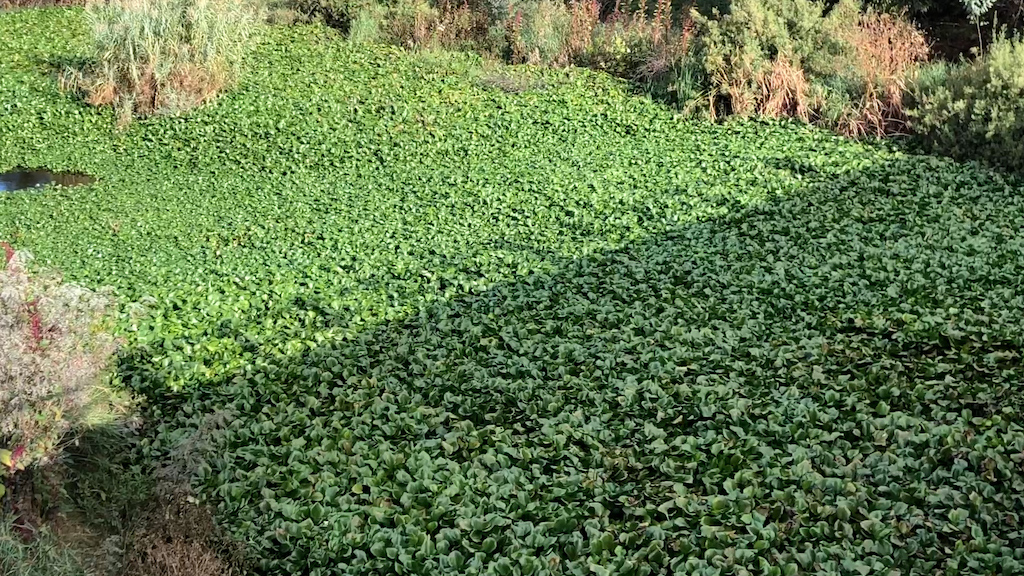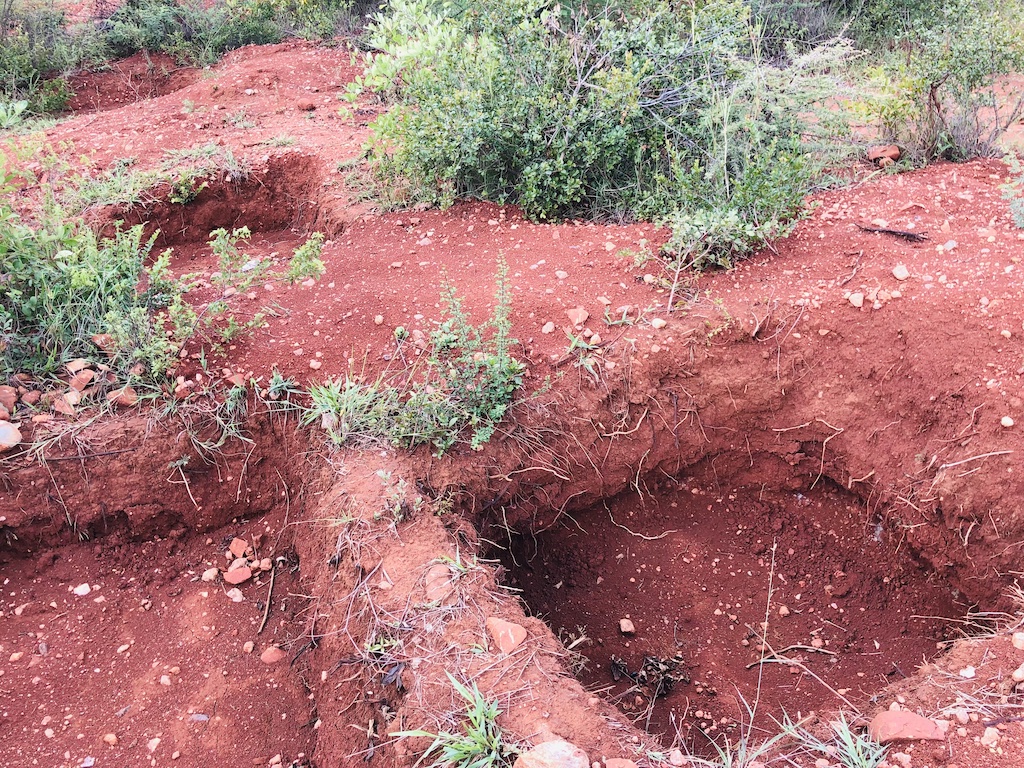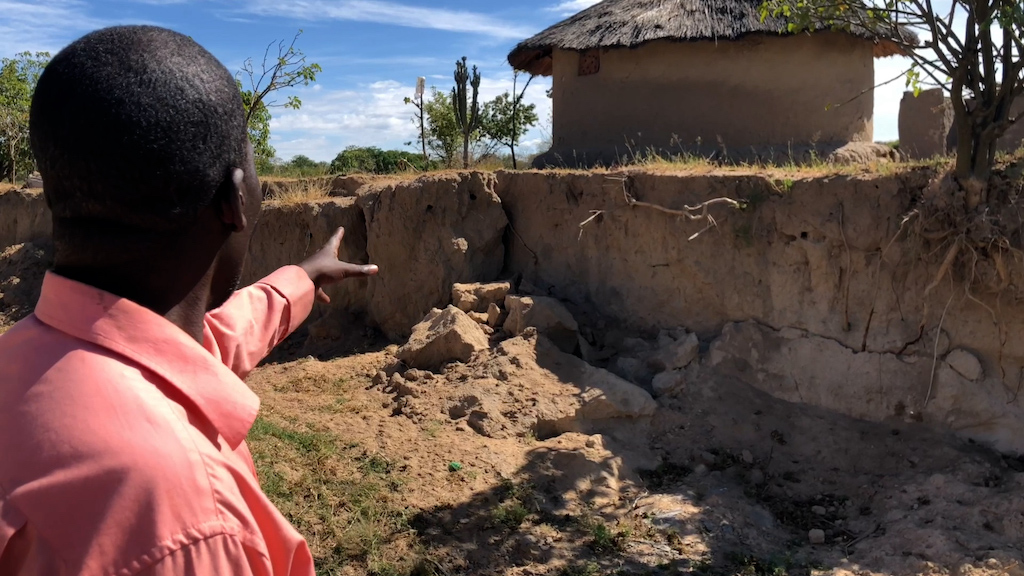The Environmental Management Agency does not have enough power to curb rampant water pollution and land degradation. Mandla Tshuma investigates the battles it faces
In almost every province in Zimbabwe, there is a river, dam, or other water source that has been polluted. Land degradation, mainly as a result of illegal gold mining and sand poaching, has become a common phenomenon across the length and breadth of the landlocked Southern African country.
These assaults on the environment have continued over the years under the watchful eyes of the Environmental Management Agency (EMA), the country’s statutory body established in 2002 and operationalised in 2003, with the mandate of preserving and safeguarding the environs.
The agency has fined some local authorities as well as mining and manufacturing companies that have been fingered as the major polluters of water, and taken some to court for environmental offences. Following an Oxpeckers investigation into lithium mining in mid-May 2024, EMA said it had issued a further three level 14 fines, worth US$5,000 each, against Bikita Minerals in Masvingo province – the company was also fined $5,000 in 2023.
Data collated from media reports indicates at least US$80,000 was handed down in fines by EMA between 2011 and 2022. The biggest fine, imposed in 2015 on the Gweru City Council in Midlands province, was for the discharge of raw sewage into a river in densely populated suburbs.
In the capital Harare, the city council was fined US$10,000 in 2016 for polluting river systems, and was ordered to clear illegal waste dumps.
Court cases
Analysis of data on court cases involving water pollution and land degradation across the country between 2012 and 2024 shows that complainants include EMA, the Zimbabwe Anti-Corruption Commission (ZACC), Zimbabwe Environmental Law Association (ZELA), Zimbabwe Lawyers for Human Rights (ZLHR), residents’ associations and individual citizens.
Defendants on other hand comprise, among others, local authorities, mining companies, EMA and Zimbabwe Parks and Wildlife Management Authority. Most of the cases had to do with illegal mining activities and water pollution, mainly through discharge of raw sewage into water sources. Other cases involved abuse of public office, lack of information access, fraud and unsupported or illegal development activities.
While the outcome of most cases remain either inconclusive or unknown, only a few have been concluded.
In 2023, 77 people were sentenced to two years’ imprisonment each by a circuit court in Shamva for illegal mining while 112 got 50 days each on charges of criminal trespass. In a separate case, the Chinhoyi Magistrate’s Court sentenced three men to two-year jail sentences each for illegal mining activities and contravening the Mines and Mineral Act.
On October 9 2019 the High Court of Zimbabwe ordered Imani Mine in Matabeleland South to immediately cease operations following a ZELA court application challenging the legality of the mine’s operations on the basis that the company had not completed an environmental impact assessment.
In 2019 the same court declared Section 180 of the Environmental Management Act, which prohibits reproduction by the public of documents in possession of EMA, null and void. That was after the Community Water Alliance took EMA and the environment minister to court challenging the constitutionality of the legislation, arguing it violated the right to access to information.
In 2020 the High Court ordered Glorious All Time Functions, a property developer, to permanently cease construction of a wedding venue on a wetland in Harare and remove all the machinery on the site, following successful legal objections lodged by aggrieved Hillside Park residents who were represented by ZLHR.
Protection of the environment
Established in terms of Section 9 of the Environmental Management Act, EMA’s functions and powers include regulating and monitoring the collection, disposal, treatment and recycling of waste; regulating and monitoring the discharge or emission of any pollutant or hazardous substance into the environment; regulating, monitoring, reviewing and approving environmental impact assessments; and developing and implementing incentives for the protection of the environment.
“People need to understand that EMA is a regulatory authority,” said its spokesperson, Amkela Sidange. “The agency’s thrust is not to punish anyone, but to increase environmental consciousness. Some polluters actually prefer to pollute and pay because the fines are not deterrent enough.”
The maximum fines the agency can impose are between level 8 (US$500) and 14 (US$5,000), resulting in a prison sentence of one year, or both a fine and the prison sentence, mainly for water pollution offences. Sidange could not be drawn into disclosing how much has so far been handed down in fines, citing changes and fluctuations in the Zimbabwean currency.
Other challenges faced by EMA, she said, include lengthy litigation in the courts, fugitive illegal miners who are difficult to prosecute, and lack of prioritisation of environmental issues by local authorities and the general public.
“We have a lot of cases that are still before the courts,” said Sidange. “They haven’t actually been looked at all as a result of the fact that the course of the law takes a long time.
Sorry state
A recent visit to degraded environments in and around Bulawayo, Zimbabwe’s second-largest city, revealed the sorry state of the country’s environmental degradation and water pollution.
They include the gold-rich Umzingwane District, about 40km south-east of Bulawayo in Matabeleland South Province, sand poaching riddled the Pumula high-density suburb, as well as the polluted Phekiwe and Umguza rivers.
Illegal gold miners have also left a trail of destruction on the land – open pits, some very deep, all over the district and now pose a serious threat to both human beings and livestock. The illegal artisanal miners even dig on river and stream banks such as Nyoni stream, which feeds into Lower Ncema Dam, one of Bulawayo’s water sources.
Umzingwane Dam, which also supplies Bulawayo, is under threat from both illegal mining activities and farm brick moulders who dig just a stone’s throw away from the dam.
In Pumula sand poachers leave open pits that have remained uncovered for years. The pits fill up with water during the rainy season and then become a threat to human life, leading to reported incidents of children drowning in them.
In Hyde Park Estate, a peri-urban area, the story is the same, with sand poachers having left many unfilled gullies that even threaten the existence of homesteads, especially in Methodist Village, on the outskirts of Bulawayo.

Water pollution
Water in the Phekiwe River, which passes through Nkulumane high-density suburb and feeds into the heavily polluted Khami Dam, is darkish in colour as a result of pollution.
Umguza River, which is almost a dead river, has suffered the discharge of raw sewage by the Bulawayo City Council over the years, resulting in hyacinth growing on its bed.
These two rivers are just the tip of the iceberg as most rivers and dams across Zimbabwe have either been or remain polluted. Such water sources include Manyame in Harare, Mucheke in Masvingo, Deka in Hwange, Sakubva in Mutare, and others.
A resident of Methodist Village, who refused to be named for fear of victimisation by sand poachers, said: “We are concerned that the environment is no longer preserved and looked after well. These sand extractors are very stubborn. They go digging all over the place. They can come at night and dig behind your house or kraal and there is nothing one can do about them. If you come out to confront them, you risk being hurt or murdered.”
He said while EMA has been to the place several times teaching residents how to look after the environment, nothing much has changed. For him the solution lies in local authorities setting aside land for sand extraction and teaming up to arrest all sand poachers.
Sand poaching
Community leader Zwelihle Mpofu said homes were under threat from sand poachers in Methodist Village, pointing to a home that was abandoned after a deep gulley was dug very close to it.
“We have EMA who are responsible for the upkeep of the environment, which includes land,” said Mpofu. “If we are to look at what is happening here, one would realise that there is no more land to talk about. Once water fills up this gulley, children risk drowning as they attempt to swim.”
He said most sand poachers travel by vehicles at night and are armed, so they do as they please and the villagers can do nothing to stop their illegal activities. “Some even do their digging in broad daylight,” lamented Mpofu.
He added it was regrettable that local citizens often contract the sand poachers to supply sand to build their houses.
EMA’s Sidange said Statutory Instrument 7 of 2007, part of the Ecosystem Protection Regulations, mandates local authorities to designate land for sand mining to avoid poaching, but not all local authorities have complied.
“One or two local authorities [Harare and Bulawayo] have been able to designate such spaces for sand mining, meaning that in all the other spaces it is just rampant,” she lamented. She urged sand extractors to always consider rehabilitating the land to minimise degradation.
Sidange said a 2022 survey by EMA indicated more than 100,000ha of land and about 1,500km of riverine ecosystems had been degraded through illegal mining. “If you look at statistics, we currently have about over 1,5-million illegal miners that are active all over the country.”
The agency’s latest assessment in 2023 showed that about 2,000ha of land had been degraded by sand poaching across Zimbabwe, with Harare and Bulawayo being the most affected. However, as of the end of 2023, only about 264ha had been rehabilitated.

Illegal gold mining
A 57-year-old resident of gold-rich Umzingwane District said illegal mining activities were seriously affecting their livestock. “Our livestock goes missing and is nowhere to be found, having fallen into pits left uncovered by gold panners,” said the man, preferring not to be named for security reasons.
“They [livestock, mainly cattle] sometimes die and decompose in those pits, some of which are very deep. During the rainy season when the grass grows taller, such pits also pose a serious threat to human beings who risk falling into them unawares and disappearing.”
He added: “Everyone knows all this, EMA knows it and even the government itself knows it, but the problem continues. It means it is difficult to stop it.”
He said the solution lies in opening up the economy, enabling people to secure employment and earn a living.
Umzingwane Rural District Council chairperson Charles Mpofu said the EMA is working “very well because even in the wards we have some environmental subcommittees formed by villagers to safeguard the environment”. However, he said illegal gold mining is one of the district’s major problems.
“The challenge is that Umzingwane is a gold-rich area, so there is a lot of gold panning,” he said. “The digging of pits loosens the soil so that when it rains the soil is washed away into rivers, leading to siltation and in the process affecting Bulawayo City Council dams. That then affects dam water levels.”

Unemployment levels
Mpofu said while EMA does environmental awareness campaigns, they are useless due to high unemployment levels. “As we speak right now our children are grounded. If they do not resort to this [illegal gold mining], they will end up stealing from us. This is a problem that the government should take note of and come up with plans to address.”
“If people are not working in a country, they try to earn a living but at the expense of the environment and its inhabitants.”
Director of the Matabeleland Institute for Human Rights, Khumbulani Maphosa, blamed the rampant land degradation and pollution of water sources on Zimbabwe’s failing economy and poor governance systems.
“It is the central government that has failed to manage the economy and to create an environment that will facilitate formal employment and absorb our young people into the employment system. They have no option but to go for gold panning,” Maphosa said.
He said EMA was incapacitated to deal with the scourge. “EMA has done well within the limits of the power they have. Without giving EMA more power and more teeth, it cannot do more than issue a fine or ticket. It can’t raid the offenders.”
Mandla Tshuma is a Zimbabwe-based journalist and alumnus of the Oxpeckers #PowerTracker training programme titled The Nexus of Data and Environmental Journalism. The programme and this investigation, part of an Oxpeckers series titled ‘The human cost of energy’, are supported by the Fojo Journalism Education Programme, incorporated under International Media Support and Fojo Media lnstitute's Media Nexus Programme 2022-2025 in Zimbabwe, funded by Sida.

